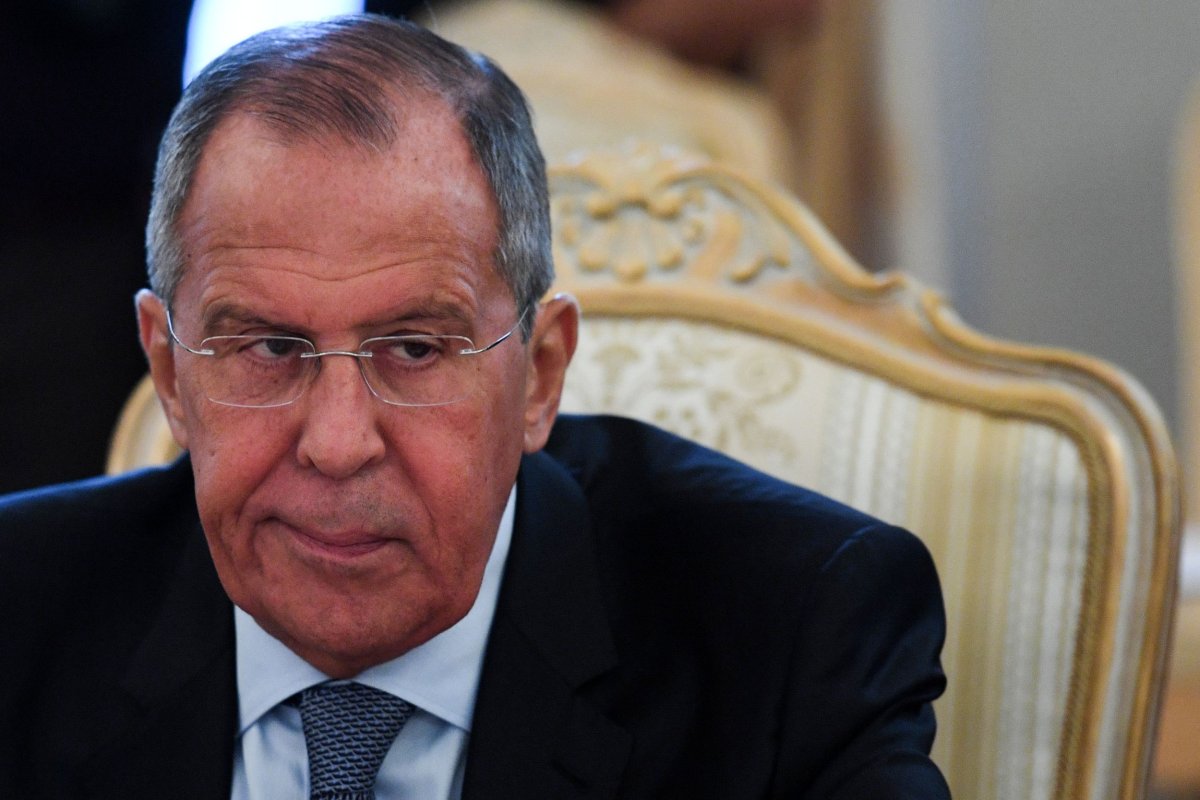The United States and Russia are becoming more and more confrontational, risking a military clash, says Russian Foreign Minister Sergey Lavrov, blaming harsh words and NATO enlargement for the uptick in tension.
Speaking in an interview with Russia's state broadcaster Perviy Kanal (Channel One), the country's top diplomat gave a rundown of relations with Washington, concluding that "tensions are growing." Over the course of the interview the minister blamed U.S. officials for backing Ukraine in its conflict with Russian-backed separatists and for "spreading ideas and rumors" about Moscow's meddling in the U.S. presidential election.
"If we were to take in the fever pitch of political fervour, the increase of rhetoric, which has probably exceeded what was considered the diplomatic norm not that long ago, then yes, of course the confrontation is growing," Lavrov said, according to the Interfax news agency.
The minister blamed the U.S. for antagonizing Russia by allowing the NATO alliance to admit more and more nations in Moscow's former sphere of influence but also "by deploying military infrastructure" in neighboring countries.
"The U.S., Great Britain, Canada, Germany and France, deploy their battalions, their tactical groups in the Baltics and on the territories of other countries that directly border the former Soviet Union," Lavrov complained.
The Kremlin consistently regards the alliance as threatening, however calls for U.S. and Western military assistance have come from a handful of Russia's neighbors, especially in the wake of the annexation of Crimea in 2014.
Western deployments have broadly followed demand on the ground, as NATO has deployed four multinational battalions in Estonia, Latvia, Lithuania and Poland, but backed away from forming a fleet across its three Black Sea allies, as Bulgaria did not share Romania's enthusiasm for the idea. Planning for a multinational unit there now centers on supporting the Romanian Navy.

The U.S. recently backed the sale of Javelin anti-tank missiles to the Ukrainian government, which has been fighting Russian-backed insurgents in its eastern Donbass region since 2014.
Russia regards NATO ambitions among ex-Soviet states as an existential threat and is currently propping up insurgencies in two aspiring members—Ukraine and Georgia.
Russia has denied supplying the separatists in Ukraine's Donbass region, despite evidence that the forces are using Russian tanks, infantry vehicles and even have Russian servicemen and veterans fighting alongside them.
Lavrov suggested Western levels of support for the Ukrainian military are excessive, adding that "not that long ago information once again came out that the Americans are sending combat supplies there, armaments, and this does not only mean small arms.
"There is already a rather large number of (military) instructors there from the U.S., Canada and other Western countries. Such steps of course increase the risks, including that of military confrontation, which would be absolutely unacceptable for the Russian Federation. The American partners have been warned about this numerous times."
Over the course of the programme Lavrov also cast doubt over the ongoing investigation into Russian meddling during the 2016 U.S. presidential election, accusing Washington of disrespecting the American voter.
"We respect the American people and their choice," the Russian minister said. "Those who spread such thoughts, rumors and inventions, do not respect the American choice at all. Those who attribute everything to Russian interference do not respect their own people, their voters."
Uncommon Knowledge
Newsweek is committed to challenging conventional wisdom and finding connections in the search for common ground.
Newsweek is committed to challenging conventional wisdom and finding connections in the search for common ground.
About the writer
I am a Staff Writer for Newsweek's international desk. I report on current events in Russia, the former Soviet Union ... Read more
To read how Newsweek uses AI as a newsroom tool, Click here.








